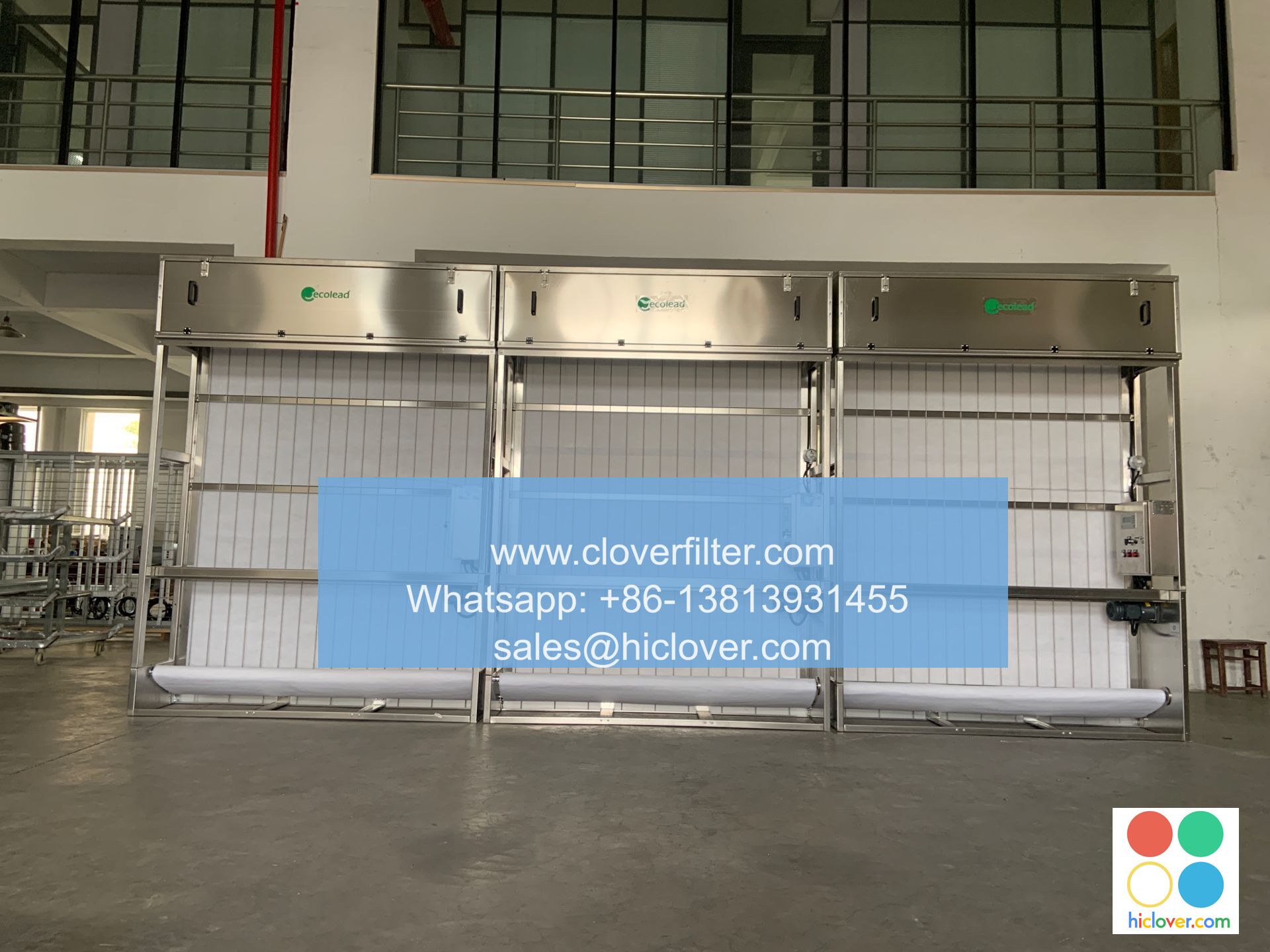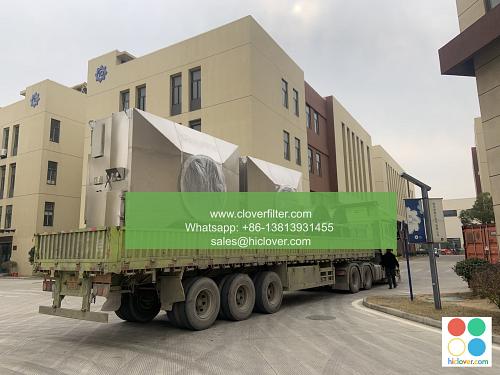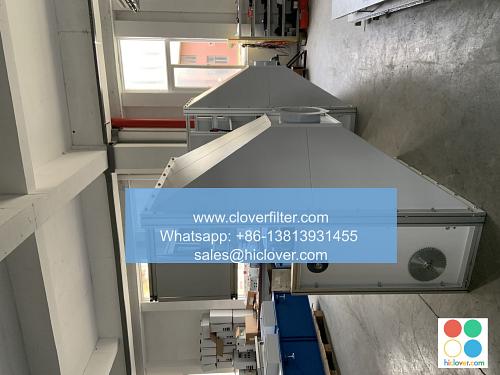Markham Data Center Cleanroom Best Practices: Implementing Automatic Roll Air Filters

As data centers continue to play an increasingly critical role in supporting the digital infrastructure of modern businesses, the importance of maintaining a clean and controlled environment within these facilities has never been more pronounced. Data centers in Markham, like those elsewhere, face the challenge of ensuring their operations are not disrupted by contamination, which can lead to hardware failures and downtime. One of the key strategies in achieving this goal is the implementation of best practices within the data center cleanroom, with a particular focus on advanced filtration systems such as automatic roll air filters.
Data center cleanrooms are essentially controlled environments designed to minimize the concentration of airborne particulates, such as dust, pollen, and other contaminants. These particulates can cause damage to sensitive electronic equipment by inducing corrosion, reducing the efficiency of cooling systems, and even triggering electrical failures. Given the high density of electronic equipment in data centers, the risk posed by airborne contaminants is particularly significant, making the maintenance of a clean environment critical to operational reliability and efficiency.
Automatic roll air filters represent a cutting-edge technology in the realm of cleanroom air filtration. Unlike traditional filter systems that require manual intervention for replacement, automatic roll air filters are designed to automatically advance a new section of filter media as the existing section becomes saturated with contaminants. This continuous process ensures that the air within the data center cleanroom remains consistently clean, reducing the risk of contamination-related failures. Moreover, automatic roll air filters can significantly reduce labor costs associated with filter maintenance, as the need for frequent manual checks and replacements is minimized.
Benefits of Automatic Roll Air Filters in Data Centers
- Enhanced Reliability: By maintaining a consistent level of air cleanliness, data centers can reduce the risk of hardware failures, thereby ensuring higher uptime and reliability.
- Operational Efficiency: The reduction in contaminants can also improve the efficiency of cooling systems, as dust and other particles can act as insulators, reducing the effectiveness of heat transfer.
- Cost Savings: The automation of filter replacement reduces the need for manual labor, leading to cost savings over time. Additionally, the prolonged lifespan of equipment due to reduced contamination can result in significant capital expenditures savings.
- Environmental Benefits: Efficient air filtration systems can also contribute to energy savings, as less energy is required to cool and maintain the data center environment, leading to a reduced carbon footprint.
The implementation of automatic roll air filters is part of a broader commitment to best practices within data center cleanrooms. Other critical measures include rigorous access controls, the use of specialized cleaning equipment, and the adoption of standardized protocols for maintenance and operations. Training personnel on the importance of contamination control and the proper use of cleanroom equipment is also essential. By fostering a culture of cleanliness and adherence to protocol, data centers can minimize risks and optimize performance.
Furthermore, the integration of advanced technologies such as IoT sensors for real-time monitoring of air quality, temperature, and humidity levels can provide data centers with actionable insights to further refine their cleanroom management strategies. This holistic approach to cleanroom management not only ensures the reliability and efficiency of data center operations but also positions these facilities for long-term sustainability and adaptability in an evolving technological landscape.
Conclusion
In conclusion, the importance of maintaining a pristine environment within data center cleanrooms cannot be overstated, given the critical role these facilities play in supporting modern digital infrastructure. The implementation of automatic roll air filters is a significant step towards achieving and maintaining the high levels of cleanliness required in these environments. By combining advanced filtration technologies with rigorous protocols and a commitment to best practices, data centers in Markham and beyond can ensure operational reliability, efficiency, and sustainability. As the demand for data center services continues to grow, the adoption of such measures will be increasingly important for facilities seeking to maintain a competitive edge in terms of reliability, efficiency, and environmental stewardship.
Frequently Asked Questions (FAQs)
- Q: What are the primary benefits of using automatic roll air filters in data center cleanrooms?
A: The primary benefits include enhanced reliability, operational efficiency, cost savings, and environmental benefits by reducing the risk of contamination-related failures and improving cooling system efficiency. - Q: How often should filter media in automatic roll air filters be replaced?
A: The replacement frequency depends on the filtration system’s design and the level of contamination in the environment. Most systems are designed to provide a continuous supply of fresh filter media, advancing a new section as the existing one becomes saturated, thus minimizing downtime and manual intervention. - Q: Are automatic roll air filters compatible with all types of data center equipment?
A: Yes, automatic roll air filters can be integrated into most data center environments, regardless of the specific equipment in use. However, it’s essential to select filters that meet the specific cleanliness and airflow requirements of the data center. - Q: What other measures can be taken alongside automatic roll air filters to ensure data center cleanliness?
A: Other critical measures include implementing rigorous access controls, using specialized cleaning equipment, adopting standardized maintenance protocols, and training personnel on contamination control practices.


